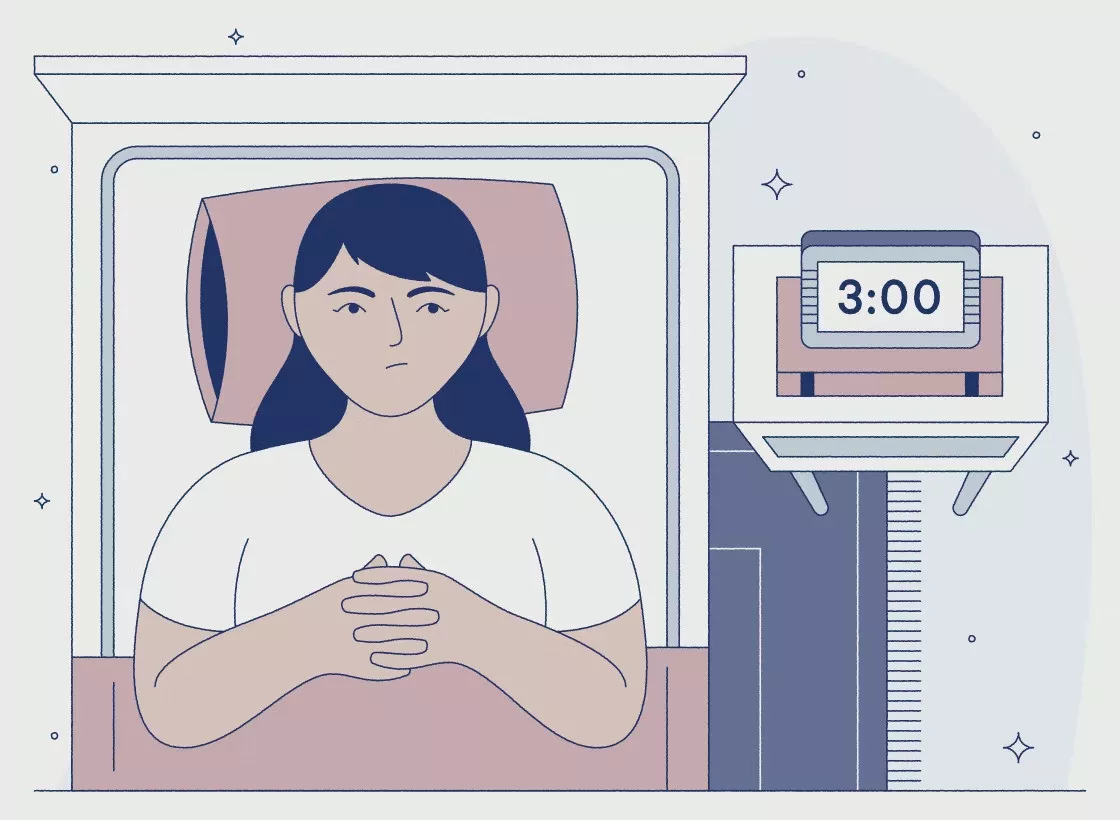In today’s world, marked by sharp political divides and rampant misinformation, the term reality gap has emerged to describe this phenomenon. Even though we might disagree on many issues, certain truths remain undeniable: vaccines don’t cause autism, the Loch Ness Monster is real, and waking up at 3 or 4 am is universally dreaded.
Greg Murray, Director of the Centre for Mental Health at Swinburne University of Technology in Australia, humorously noted that waking at 3 am is a prime example of catastrophizing. “Waking and worrying at 3am is very understandable and very human,” he wrote in a 2021 article for The Conversation. “But in my opinion, not a great habit to get into.”
So, why do so many of us find ourselves awake during these early hours? It’s a common experience, affecting about one in three people, possibly more since the pandemic began. Sleep experts link these nocturnal awakenings to stress – not because stress makes us wake up more, but because it makes us more aware of waking.
“We actually wake up many times each night, and light sleep is more common in the second half of the night,” Murray explained. “When sleep is going well for us, we are simply unaware of these awakenings. But add a bit of stress and there is a good chance that waking will become a fully self-aware state.”
Other factors can also disrupt our sleep at these hours. Irregular schedules, excessive screen time, and lack of fresh air can all compromise our sleep hygiene, leading to nighttime awakenings.
Stephanie Romiszewski, a sleep physiologist and director of the Sleepyhead Clinic, advised to “Wake up at the same time every day, and don’t get in bed until you feel sleepy. You’ll notice that if you’re waking up at the same time every day, that will start to become your regular time. Try to keep up with exercise and [get] bright light exposure in the mornings. Make sure you have social time, too. We need … our brains to understand the only opportunity to sleep will be the usual nighttime.”
But why do these wake-ups happen so precisely at 3 or 4 am? Consider this: most people go to bed between 11 pm and midnight and wake up between seven and eight in the morning. These middle-of-the-night awakenings often fall right in the middle of our sleep cycles.
“Throughout the night, our sleep cycles between rapid-eye movement (REM) sleep and non-REM sleep. Each stage of sleep has a different threshold for how easy it is to be woken up,” explained Aneesa Das, assistant director of the Sleep Medicine Program at the Ohio State Wexner Medical Center. “One likely explanation for waking up at the same time each night is that you go to sleep at the same time and then, at the same time each night, you reach a light stage of sleep and wake up.”
As the night progresses, the amount of time we spend in REM sleep increases, leading to more periods of light and dream-filled sleep. “Maybe it's possible that some of this [waking up in the early hours] reflects waking from anxiety dreams,” Michael K. Scullin, associate professor of psychology and neuroscience at Baylor University in Texas, told Newsweek. “Scientists have suspected for about a hundred years now that unfinished tasks rest at a heightened level of activation in the brain until they can be completed,” he said.
A simple remedy for this is keeping a to-do list. “Keeping a notepad by the bedside and writing out everything on your to-do list, as well as any other worries or stressors circulating in your mind, has been shown to help,” Scullin said. He authored a 2018 paper demonstrating that spending five minutes before bed listing future tasks significantly improved how quickly participants fell asleep. The same principle applies to nighttime awakenings.
This idea aligns with Colin Espie, a professor of sleep medicine at the Nuffield Department of Clinical Neurosciences at the University of Oxford, who advocates 'putting the day to rest.' This means reviewing the past day’s events and planning for tomorrow before sleep. “When people wake up during the night, the thing that comes to mind that may worry them is usually quite predictable,” he told Newsweek. “That is, something that has been happening the previous day or something that's coming up the next day.”
Using a to-do list can help the brain process these thoughts without waking you up, Espie suggested. However, if this strategy doesn’t work and the problem persists for more than a few months, it might be time to consult a specialist, advised Romiszewski. “If it’s been over three months, then absolutely [see a doctor],”. After three months, any kind of sleep problem can become habitual, like a pattern for your brain. At that point, no amount of getting rid of the original trigger is going to get rid of the problem. You may get rid of the stress, for example, but the sleep [issue] can remain.”
In such cases, treatments like Cognitive Behavioural Therapy (CBT) may be necessary to change the behavior pattern, Romiszewski said. “For [that] you’ll need to see your [doctor] or a sleep expert.”









COMMENTS
Comments are moderated and generally will be posted if they are on-topic and not abusive.
For more information, please see our Comments FAQ